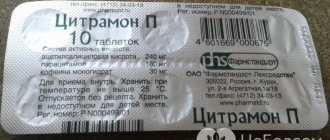The burst of energy, invigorating aroma and rich taste have helped coffee win millions of fans around the world. And besides helping you wake up, this drink has other beneficial properties.
However, as they say, good things should be in moderation. And if you drink too much coffee, it can negatively affect your health. But if you reduce or stop consuming caffeine, this is what will happen to your body.
Effect of caffeine on humans
In small quantities, this natural psychostimulant is beneficial to the body. After taking it, the following happens:
- Thinking improves;
- Reaction speeds up;
- Metabolism increases;
- Appetite improves;
- Blood pressure increases;
- Blood circulates faster in the vessels;
- For a man, a small portion of coffee will help increase potency.
If you drink an invigorating drink constantly, it will be easier to lose weight, you will be able to concentrate on the work at hand faster, and have time to do a lot of useful things in a day.
But taking caffeine in large doses is harmful.
Is it possible to take expired analgin?
Generally accepted medical standards prohibit the use of any medications after their expiration date - they must be disposed of in the prescribed manner. Considering the low cost of the medicine, it is better to throw away tablets or ampoules that have expired.
replacing them with new ones purchased from the official pharmacy chain.
However, in some cases (for example, the need to introduce the drug into the body as urgently as possible or a person is in a hard-to-reach place without the opportunity to purchase the drug), the use of expired analgin may be justified.
As clinical practice shows, with careful observance of storage conditions (dark place, completely isolated and sealed packaging, correct storage temperature), metamizole sodium, after the expiration of the period of use recommended by GOSTs, retains its therapeutic properties for another 6-8 years. Moreover, during the process of oxidation and destruction of the substance during very long storage, no obvious toxic compounds are formed.
Drug poisoning among children and adults is a very pressing problem. Therefore, it is very important to carefully study the instructions before taking the drug, and also store medications out of the reach of children.
Why you shouldn't drink a lot of coffee
If you take 20-25 cups of the drink per day, symptoms of caffeine overdose may appear. They occur when 100 mg of an alkaloid enters the body during the day.
If you drink too much coffee, the following will happen:
- Cardiopalmus. The pulse rate jumps to 100-120 beats per minute;
- Your head will spin;
- Blood pressure will increase. Its indicators depend on the predisposition to hypertension and can reach critical levels;
- Sweating will increase;
- The face and skin will become reddish;
- The functioning of the stomach and intestines will be upset;
- Dehydration will occur due to the diuretic effect and loss of fluid through sweat.
If such symptoms appear, you should stop consuming caffeine-containing products. Otherwise, you can get serious complications from an overdose of alkaloids.
If you continue to take too much coffee, the poisoning can become severe. Symptoms of a severe overdose of aromatic drink alkaloids are:
- Irritability turning into aggression. Constant nervous tension leads to a deterioration in general well-being;
- Sleep disturbance. A person who is poisoned cannot fall asleep normally due to constant agitation and often wakes up for no reason;
- Disruption of the cardiovascular system. In addition to pressure surges, other unpleasant symptoms may appear - blue skin, shortness of breath, chest pain;
- Arrhythmia, tachycardia;
- Frequent urination;
- The eyes become watery and noticeably shiny;
- Speech is incoherent, confused, the patient can talk for hours;
- Sometimes hallucinations occur.
If at least two of the listed symptoms are detected, you need to take immediate first aid measures. If necessary, consult a doctor.
Sensitivity to caffeine depends on many factors: age, gender, body weight, the presence of chronic heart and vascular diseases. Poisoning can occur even when taking surrogate coffee made from chicory or other substitutes.
What is valerian and what is it eaten with?
Home herbal treatment has always been held in high esteem in our country. Everything that grows in a village meadow or in your home garden is automatically considered useful, safe and environmentally friendly. Treating serious chronic diseases with ordinary herbs is, of course, not the best idea, but plants can be excellent helpers in calming the nerves.
It is no coincidence that the beneficial properties of hawthorn, motherwort and peony are still so valued. And valerian today is one of the leaders in “sedative” sales in pharmacies. And medicinal herbs have been used for several thousand years!
Valerian officinalis has a lot of names - cat's root, forest incense, shake grass. And its effect is very diverse. Surely you have at least once seen how fragrant herbal drops act on domestic cats, literally driving the majestic purrs crazy? But the effect on a person is exactly the opposite - they calm you down like little ones.
But an overdose of valerian can have a completely unpredictable effect. And this largely depends on the medicinal form of the plant. Today, pharmacies offer several valerian preparations:
- dragees (yellow tablets 20 mg);
- tincture (drops of 25, 40 and 50 ml);
- rhizomes (in bulk and in filter bags).
First aid for caffeine overdose
In case of acute poisoning, you must first remove the remaining alkaloid from the body. To do this, drink large amounts of water and induce vomiting. Afterwards you need to drink sorbents. These may be: activated carbon, polysorb, enterosgel and other drugs with a similar effect.
The victim needs fresh air, so they open the windows and unbutton the patient’s collar. Hot, high-calorie food will help you quickly overcome the consequences of poisoning. The victim is given soup, potatoes, pasta and other dishes.
In severe cases of caffeine poisoning, seek medical attention as soon as possible.
What types of sleeping pills are there?
Sedatives and sleeping pills have different effects. Sedatives are aimed at eliminating stress and improving the emotional background, and drowsiness occurs as a side effect. Sleeping pills are drugs whose effect is to induce drowsiness and fall asleep.
The properties of a good drug are:
- rapid onset of results;
- long-term exposure – approximately 6-8 hours;
- minimum of serious side effects if you drink too much;
- no dependence.
The drugs are available in the form of tablets, capsules or injections. Currently, there are three types of sleeping pills:
- Barbiturates. First generation drugs that have a calming effect, which can act as a kind of anesthesia. Such drugs have many negative effects, including barbiturate poisoning.
- Benzodiazepines. The most famous are phenazepam and nitrazepam. They have practically no negative consequences, but with prolonged use they can cause dependence and withdrawal symptoms.
- Third generation products. Innovative short-acting drugs that do not cause daytime sleepiness and are not addictive.
However, an overdose of any drug from three generations can provoke severe poisoning and affect the functioning of vital organs.
Chronic coffee abuse
If you drink an invigorating drink in large quantities every day, then over time it will negatively affect your health.
The nervous system will be exhausted, insomnia, irritability, and a state of chronic fatigue will appear. Possible exacerbation of mental illness.
Diseases of the cardiovascular system will appear due to excess stress and arterial hypertension.
There may be a violation of water-salt metabolism, a deficiency of vitamins and microelements in the body. All this leads to the appearance of osteochondrosis, increased bone fragility and tooth decay. Lack of vitamins causes disruption of the blood supply to the extremities and central nervous system.
Skin problems appear, its tone decreases, and cellulite is detected.
The presence of bad habits, such as smoking and addiction to alcohol, increases the negative effects of caffeine on the body. The habit of drinking an invigorating drink before breakfast also has an adverse effect on health.
If a person drinks more than 6 cups of an invigorating drink a day, he may develop caffeine addiction.
Drinking large amounts of coffee every day can ruin your complexion and darken your tooth enamel. For girls, such consequences of abusing a popular drink can be especially unpleasant.
Causes of drug poisoning
Drug overdose can occur for many reasons. It most often develops in people who take medications without consulting a doctor or change the dosage without permission. Below are the main reasons why pill poisoning can develop.
- Self-medication, taking medications not approved by the attending physician. Sometimes people take drugs on the advice of friends, neighbors, or relatives.
- Taking large doses of the drug in critical or emergency situations. For example, when the body temperature rises, people, in an effort to quickly bring it down, drink large doses of medications and combine them with each other. Such uncontrolled use of drugs often leads to fatal poisoning.
- A person taking medications that are contraindicated for him due to his age or health condition. For example, the drug aspirin (acetylsalicylic acid) is deadly for children, it causes Reye's syndrome in them and leads to rapid death from internal bleeding.
- A fatal overdose of pills can occur in children who have eaten pills left behind by adults. Kids love to taste everything, they are interested in everything. All medications available at home should be kept out of the reach of children.
- Overdose of drugs for the purpose of suicide (suicide). Most often, people use sleeping pills and tranquilizers for this purpose. They cause relatively easy death from overdose.
- Drug poisoning due to taking them with alcoholic beverages.
- Dangerous combination of drugs. In the instructions for the drugs, you should carefully read the list of drugs with which they cannot be combined.
- Premeditated murder. Medicines can deliberately poison a person. Some drugs in large doses are potent poisons for humans.
Rules for safe drinking of aromatic drink
If you drink coffee every day, you need to monitor the number of cups you drink. To avoid complications and get a boost of energy, you should not exceed the recommended daily dose of the drink. It is individual for everyone. 2 cups of coffee a day will not cause any harm to a person.
3 cups per day is an acceptable amount for a healthy lover of aromatic drink. The largest safe dose of strong coffee is 6 servings per day. 10 cups per day will cause acute poisoning, and regular intake above the norm will lead to a number of chronic diseases.
Add no more than two spoons of instant coffee to a glass of water. A young child should not drink this stimulant drink. An immature body is not yet ready for additional stress. Children can consume it only from the age of ten, not with strong, diluted milk.
Caffeine is found in chocolate, cocoa and tea. Therefore, you should be careful when combining these products with coffee.
There is no need to drink a fragrant drink late in the evening, shortly before bed. The consequences of this intake are insomnia. It is better to drink coffee in the morning and afternoon, and take the last cup before 18:00.
It’s better to end your meal with a mug of invigorating liquid. Coffee drunk on an empty stomach will burn the mucous membrane and can lead to gastritis.
Analgin dosage for adults and children
Let's consider how many analgin tablets you can take at a time. Classic recommended dosages of the drug depending on the age group:
- From 10 to 14 years with a body weight of 32-53 kilograms. A single dose of 500 milligrams of metamizole sodium (or 1 tablet). Daily dose – up to 2 thousand milligrams of analgin (or 4 tablets);
- From 15 years and older with a body weight over 53 kilograms. A single dose is from 500 to 1 thousand milligrams (1-2 tablets). Daily dose – up to 4 thousand milligrams (8 tablets);
- Over 60 years old. The dosage for adults is reduced by 2 times.
Children under 10 years of age with a body weight of less than 32 kilograms are not recommended to use analgin.
Is it possible to die from analgin? The lethal dose of analgin in tablets varies widely
and depends on the characteristics of a person’s metabolism, the presence of a number of diseases, the current state of organs (in particular the kidneys and liver), the presence of concurrent use of other medications, the method of drug administration and other factors.
As modern medical practice shows, a high probability of death in the absence of prompt, correct first aid and complex intensive care in a hospital setting occurs with a single use of 5-20 grams of metamizole sodium.
Contraindications
The aromatic drink should not be taken by people with the following diseases:
- Hypertonic disease. High blood pressure can lead to serious complications;
- Cardiovascular system disorders. Caffeine is especially harmful for those who have recently suffered a myocardial infarction;
- Chronic gastritis and stomach ulcers;
- Glaucoma;
- Cholecystitis;
- It is undesirable to drink the drink in old age.
Coffee is completely contraindicated for pregnant women. The alkaloids contained in the drink can cause uterine contractions and miscarriage.
Consequences of daily alcohol consumption
If a person drinks for a long time, it becomes noticeable even to strangers. However, chronic drunkenness leaves its mark not only on the appearance of the alcoholic. Along with this, changes occur in almost all internal organs. At first, this may not manifest itself in any way, but after a few years, health noticeably deteriorates. Whether this can be avoided depends on the person himself.
Chronic alcoholics often suffer from mental disorders. They often develop alcoholic psychoses - hallucinosis, paranoids, delirium tremens, alcoholic delusions of jealousy, Korsakoff syndrome. Such people become inadequate even when sober, which is quite dangerous both for themselves and for those around them.
Consequences of prolonged daily drinking:
- Liver damage with subsequent disruption of its detoxification function, necrosis of hepatocytes, development of hepatitis, cirrhosis and fibrosis. The liver becomes unable to cleanse the blood of ethyl alcohol and harmful metabolic products. As a result, almost all human organs begin to suffer from constant exposure to harmful toxins.
- Mental disorders and neurological disorders. Alcoholics may develop alcoholic encephalopathy, dementia, epilepsy, polyneuropathy or other neuropsychiatric disorders. This will inevitably happen if a person drinks alcohol every day for a long time.
- Disruption of the normal functioning of the digestive system. Alcoholics experience increased activity of the salivary glands, which causes them to produce excess amounts of saliva. Indigestion, heartburn and other unpleasant sensations often occur. Gastritis, ulcers, and pancreatitis may occur. Many people develop cancer of the stomach, esophagus, or mouth.
- Sexual dysfunction. In men who abuse alcohol, libido decreases, sexual desire and self-confidence disappear. It should be noted that systematic drunkenness often leads to impotence. As for women who drink, they are often diagnosed with infertility.
Chronic alcoholics always have problems at work, in their family and circle of friends. They cease to be interested in anything except alcohol. This often leads to dismissal, frequent quarrels with loved ones, divorce, loss of contact with friends, and abandonment of favorite hobbies and interests. The social circle of drunkards narrows sharply. As a rule, they spend all their free time with drinking buddies.
The more alcohol a person drinks every day, the faster he degrades. It should be noted that due to physiological characteristics, women become drunkards much faster than men. While the latter can drink a little for many years, the fair sex becomes alcoholics within 2-3 years. And getting rid of alcohol addiction is many times more difficult for them than for men.
How to reduce the harm of coffee to the body
- Do not smoke with a cup of invigorating liquid. Nicotine in this combination is especially harmful. It is best to give up the bad habit;
- It is better to drink coffee with milk, diluting a strong, concentrated drink. Then the gastric mucosa will not be damaged;
- An invigorating drink can dehydrate the body. To prevent this from happening, you need to drink a lot of water after each mug - at least half a liter;
- For those for whom coffee is contraindicated, it is recommended to replace it with similar-tasting drinks that do not contain caffeine;
- Alkaloids are removed from the body for a long time, within 4-6 hours. Maximum concentrations in the blood are reached 40-50 minutes after administration. Therefore, you can drink coffee again without harm to your health only after 3-4 hours.
Poisoning with pills: what to do at home, emergency care
The main rule in case of drug overdose is immediate response. If you suspect that one of your loved ones has been poisoned, or you feel a sharp deterioration after taking medications, immediately call an ambulance.
Before the medical team arrives, do the following:
- Find out the quantity and name of the drug taken. If you personally have been poisoned, it is better to write down this information and leave it in a visible place, since loss of consciousness is possible. If possible, call someone (family, friends, neighbors) for help.
- If no more than half an hour has passed since taking the medicine, it is necessary to induce vomiting. To do this, the victim is given a large amount of warm liquid (water, tea, herbal infusion) to drink and pressed with fingers on the root of the tongue. 30 minutes after taking the drugs, this measure will no longer be effective: most drug components are quickly absorbed into the blood.
- Provide the patient with plenty of fluids. Drinks that envelop the mucous membrane - jelly, rice water - are especially useful. They interfere with the absorption of many drugs. The benefits of milk in case of poisoning, according to doctors, are controversial: it can only help in some cases, but fat-soluble toxins will be absorbed faster.
- Some toxic substances can be removed using enterosorbents - activated or white carbon, Polysorb, Smecta, or any others. Be sure to tell your doctors if you are taking any medications, as they may obscure your symptoms.
- A cold compress, ice pack, frozen food bag, or damp towel placed on the forehead will tighten the capillaries and help protect the brain from toxins.
All of the above first aid measures can only be applied when the person is conscious.
If the patient is unconscious, these actions are prohibited. It is permissible to provide only the following assistance:
- Check the victim's mouth for any remaining tablets. Found medications should be carefully removed and subsequently handed over to doctors.
- Place the patient in a horizontal position with his head turned to the side. When gagging occurs, this will prevent the patient from choking. Forcibly inducing vomiting is prohibited.
- Pull the tongue out and fix it in such a position so that the person does not accidentally choke on it. It is tied with gauze or a bandage to a tablespoon or any similar object.
- Monitor the victim’s condition, and if breathing or cardiac activity stops, take urgent resuscitation measures (indirect cardiac massage, artificial respiration).
What not to do if poisoned
In case of drug poisoning, it is prohibited:
- cause vomiting in case of cardiac dysfunction - high risk of heart attack or ischemia;
- rinse the stomach during pregnancy or under 5 years of age;
- drink sparkling water;
- take additional medications, in addition to enterosorbents - a combination of several medications will only worsen the patient’s condition;
- leave the victim unattended.











